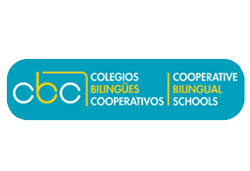Teaching English in Spain
In the heart of Madrid, I teach English. My students are eager and diverse, ranging from young children to retirees. Every day, we start with greetings. “Good morning,” I say with a smile.
My classroom was a ton of fun. Posters cover the walls—vocabulary, grammar rules, and famous quotes. Each lesson is interactive. I use games, songs, and stories. The children love “Simon Says,” while the adults prefer role-playing scenarios.
One day, I introduce idioms. “It’s raining cats and dogs,” I explain. The students laugh, looking puzzled. I mimic holding an umbrella, pretending to dodge falling pets. They get it and sometimes join in the fun.
This could be you. Spain is so much more than that. Alba says the demand for TEFL teachers in Spain is high. There are literally thousands of jobs to choose from.
Did you know there is a day dedicated to paella? 🇪🇸 YEP, that's right – today is #SpanishPaellaDay 🥘
— The TEFL Academy (@TEFLAcademyUK) March 27, 2022
Have you ventured to Spain like alumna Alba yet? The demand for #TEFL teachers in Spain is high and there are literally thousands of jobs to choose from! https://t.co/KaR5xo9R8E pic.twitter.com/h7ixXIY3Na
How about a totally different experience?
Just read about Acacia Lill and her experience in Spain.
Usually, you get placed into a classroom of children. But Acacia is teaching English to a 4-year-old boy.
Meet Acacia Lill 👋
— The TEFL Academy (@TEFLAcademyUK) July 2, 2024
Read their full story on our Alumni page: https://t.co/qkbell8Ow4#theteflacademy #tefl #teflcourse #teachenglish #englishteacher #teachonline #teachenglishonline #teflteacher #esl #eslteacher #tesol #teflacademy #onlineteacher pic.twitter.com/ZUgFOGvkaT
I love Spain.
And the reality is that you can hop on a plane and teach there today.
Teaching English in Spain
Requirements
Bachelor’s Degree: Preferred. But not required
Monthly Salary: $800 to 3,000 USD
Peak Hiring: September to October
Visa Information: Student visa. EU citizenship
Housing: Not compensated
Airfare: Not reimbursed
Student Types: Business English and children
At a Glance
Teaching English in Spain has been a great opportunity for me to immerse myself in another culture and gain a new perspective on the world. However, there were some things I wish I had known before making the decision to teach abroad.
Overview
Spain is a popular choice for English teachers because it’s not too far away from the rest of Europe. You also get a wonderful quality of life being there with all sorts of beautiful places to explore. Not only is it easy to get around, but it’s well-connected between cities by bus or train.
If you want vibrant nightlife, you’ll love the experience of living in Spain. Even the smallest villages can have parties that go all night long. It’s relatively easy to pick up Spanish compared to languages in Asia so culture shock is usually not an issue.
If you’re thinking about teaching English in Spain, it may require you to have a Bachelor’s degree. Not all employers request teachers to have a TEFL certification. Although it’s not essential, it still helps prepare you to teach English in a classroom.
What do you think about teaching in Barcelona?
Because opportunity knocks on your door.
Here’s Caitlin, living the dream in Barcelona.
"A sunny day means up bright and early to enjoy more of our beautiful city" 😍🇪🇸
— The TEFL Academy (@TEFLAcademyUK) September 27, 2021
Alumna Caitlin has us daydreaming about days in Barcelona! Well, guess what? It doesn't have to just be a dream! Enrol in a #TEFL course and tick Spain off your bucket list! https://t.co/KaR5xo9R8E pic.twitter.com/Wxb6HK9P4C
Pros of Teaching English in Spain
Cons of Teaching English in Spain
English Language Schools in Spain
If you’re first starting as a teacher abroad, internship programs are a hassle-free way to go. Internship programs usually cover all the essentials for teaching English in Spain. For example, it includes salary, accommodation, airport pickup, meals, and TEFL certification.
The North American Language and Culture Assistants Program (NALCAP) pairs American and Canadian graduates with elementary and secondary schools in Spain. Any native-like speaker can apply and become a teaching assistant (TA).
Meddeas partners with more than 200 private schools in Spain. This program is geared towards English native speakers with little or no teaching experience. You need to be TEFL-certified or have the equivalent education to apply for Meddeas.
To get accepted into UCETAM, candidates must be native English speakers. They also must have experience with children, hold a university degree, and have a clean criminal record. The application period for the UCETAM academic school year typically starts in January.
Salary
English teachers enjoy a high wage for the amount of work in Spain. The typical salary for English teachers in Spain ranges from €700 – €2,000 per month. This translates to anywhere between $800-3000 USD.

Depending on which program you’re in and how many hours you get assigned, you may only work 3 or 4 days per week. Spain also has lots of holidays throughout the year. It seems like there’s at least one 3-day weekend every month.
One of the good things about Spain is that it’s relatively easy to pick up extra English lessons on the side. Some schools offer subsidized rent and health care to English teachers. But unlike some countries in Asia, Spanish schools don’t reimburse you for airfare.
| Monthly Salary | Total |
|---|---|
| US Dollars (USD) | 800 to 3,000 USD |
| European Euros (EUR) | 700 to 2,000 EUR |
Certification
Teaching English in Spain is a great opportunity for native English speakers to earn a paycheck while enjoying the culture and lifestyle of Spain. While teaching English in Spain doesn’t necessarily require a degree in education, it does require some training. In most cases, teachers will be required to take part in a course where they learn about teaching techniques and classroom management.
Spain is also a popular destination for TEFL/TESOL teachers, so you’ll have to stand out from the crowd if you want to get hired. This is where TEFL certification can help set you apart from the competition. A TEFL certification program can provide you with the necessary skills to teach English to students including interactive teaching, grammar, and vocabulary.
Frequently Asked Questions
As a brand new ESL teacher, you might be able to find a job in Spain and make enough money to live comfortably with a bit left over. Monthly salaries can range depending on location and school. You can earn anywhere between €700 – €2,000 ($800-3000 USD).
Virtually no programs have a Spanish language requirement. But you should be good enough to have at least a basic knowledge of the language. It’s also helpful for understanding rule changes for visas and checking out your banking documentation.
You need an undergraduate degree as a minimum requirement and a criminal record check. Some programs request teachers to obtain TEFL certification before teaching.
Paydays can be late or inconsistent. Because you get paid just once a month, this makes budgeting tough. It can also give a sense of disorganization within the country and schools in Spain.
Just like all countries in the world, crime exists in Spain. But it’s a relatively safe country to visit and work as an English teacher.






